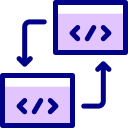Measure Progress with Metrics, OKRs, and Reflection
Track leading indicators like practice minutes, commits, and review sessions, alongside lagging indicators like shipped projects, interviews, or promotions. Together they reveal progress quality and highlight bottlenecks early.
Measure Progress with Metrics, OKRs, and Reflection
Set an objective like automate monthly reporting. Key results might include three Python scripts, one reusable template, and a documented workflow. Keep scope realistic and celebrate each result with a short retrospective.


